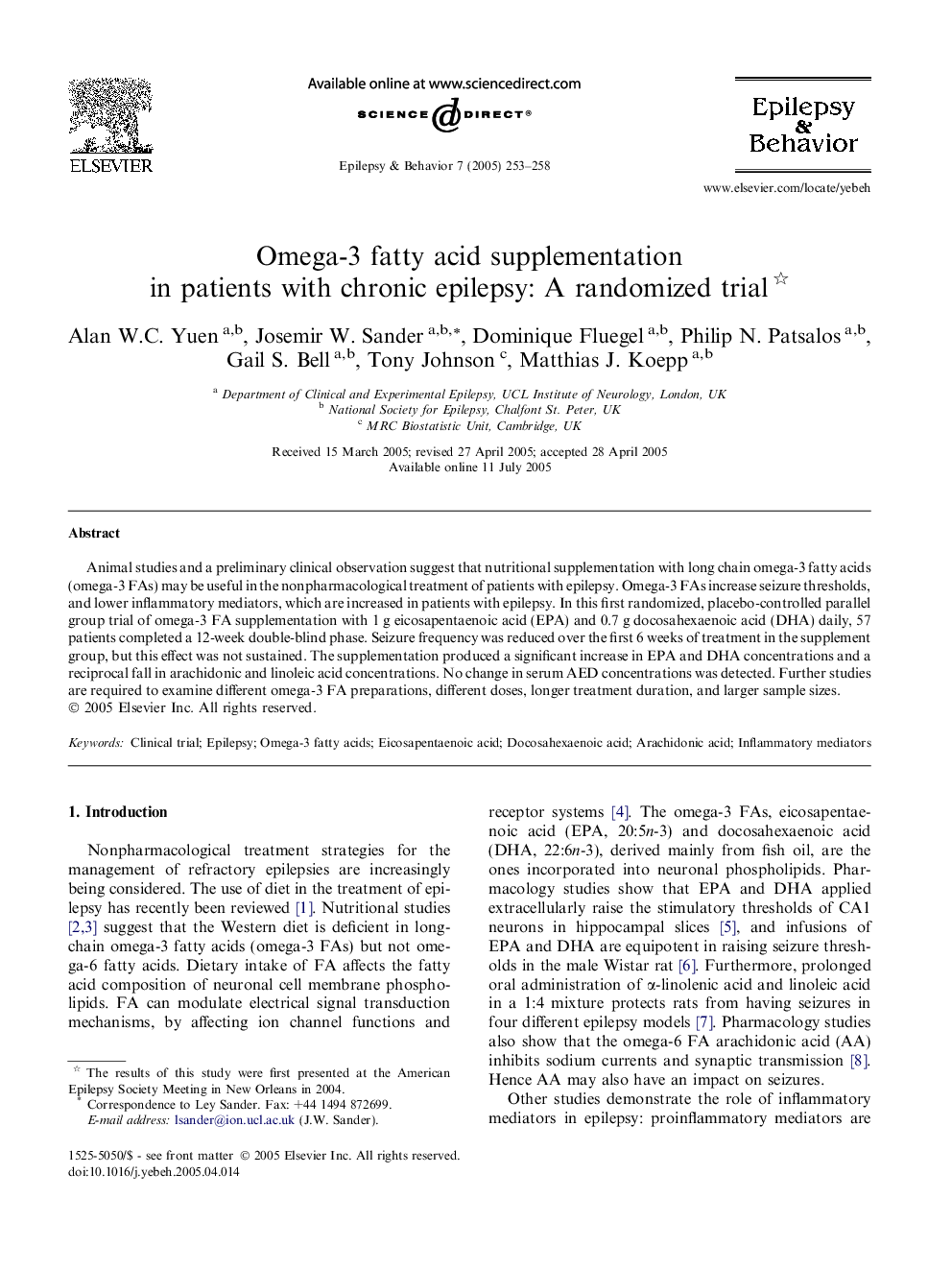| Article ID | Journal | Published Year | Pages | File Type |
|---|---|---|---|---|
| 9190359 | Epilepsy & Behavior | 2005 | 6 Pages |
Abstract
Animal studies and a preliminary clinical observation suggest that nutritional supplementation with long chain omega-3 fatty acids (omega-3 FAs) may be useful in the nonpharmacological treatment of patients with epilepsy. Omega-3 FAs increase seizure thresholds, and lower inflammatory mediators, which are increased in patients with epilepsy. In this first randomized, placebo-controlled parallel group trial of omega-3 FA supplementation with 1Â g eicosapentaenoic acid (EPA) and 0.7Â g docosahexaenoic acid (DHA) daily, 57 patients completed a 12-week double-blind phase. Seizure frequency was reduced over the first 6 weeks of treatment in the supplement group, but this effect was not sustained. The supplementation produced a significant increase in EPA and DHA concentrations and a reciprocal fall in arachidonic and linoleic acid concentrations. No change in serum AED concentrations was detected. Further studies are required to examine different omega-3 FA preparations, different doses, longer treatment duration, and larger sample sizes.
Keywords
Related Topics
Life Sciences
Neuroscience
Behavioral Neuroscience
Authors
Alan W.C. Yuen, Josemir W. Sander, Dominique Fluegel, Philip N. Patsalos, Gail S. Bell, Tony Johnson, Matthias J. Koepp,
